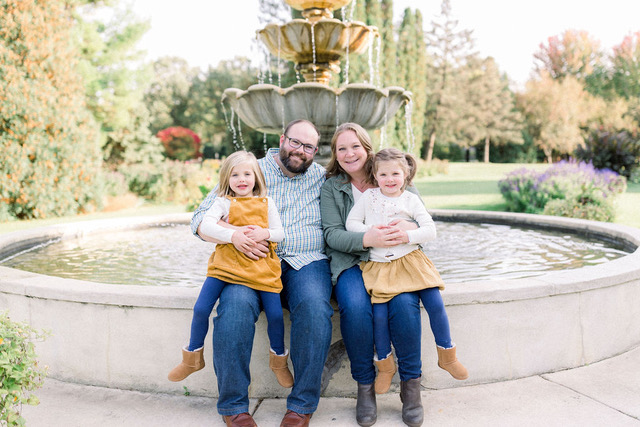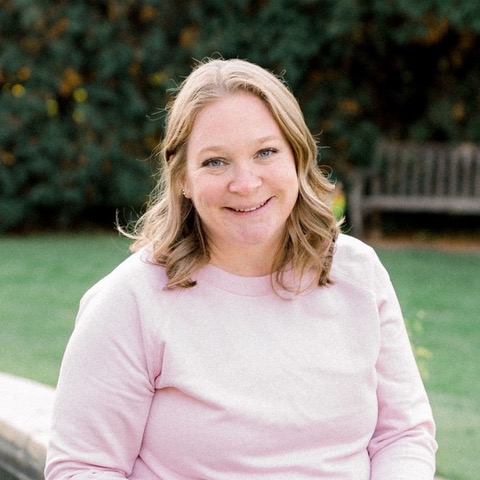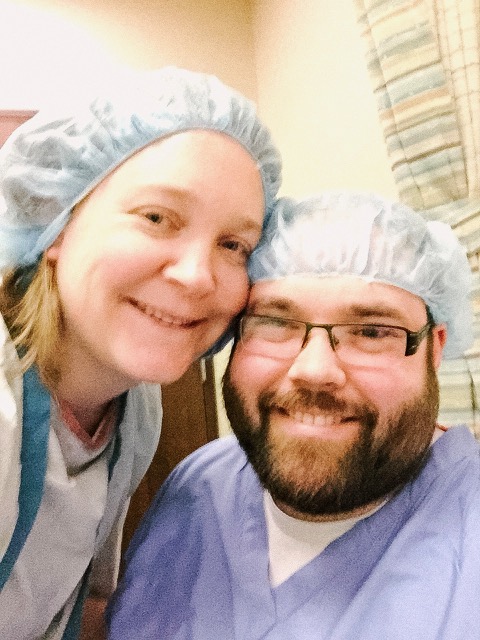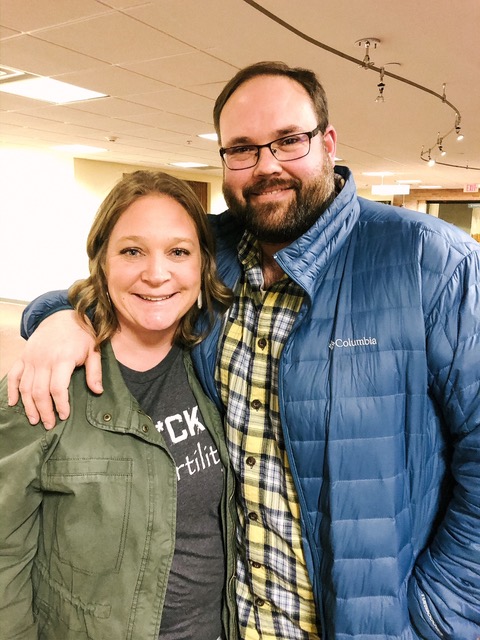Meta Getman: The Inspirational Coach Helping Families Come to Terms with Donor Conception
Meta Getman went through a long and difficult journey, including four IUIs, three fresh IVF cycles with her own eggs, and one donor egg cycle before welcoming her beautiful twin girls. Inspired by her own experience, Meta is now a donor conception coach, helping women and couples facing “a path to parenthood they never imagined: using donor eggs, donor sperm, or donor embryo”. Meta has been featured on multiple podcasts, spoken at the RESOLVE Midwest Family Building Summit and co-founded a community of families who used a donor to have their children. We’re so grateful to Meta for chatting with us – during our conversation, she goes into detail about her journey, debunking 3 of the most common egg donation myths. She also shares 4 important tips to help intended parents become comfortable with donor conception. Read on for Meta’s story and invaluable advice…

- As a mother of twin girls (who just started Kindergarten!) born through donor conception after a lengthy fertility journey – can you share your family building story and how it inspired you to become a coach to support others throughout theirs?
My husband, Michael, and I were lucky because we found out we would have a challenge getting pregnant on our own fairly early in our journey due to a diagnosis of low sperm count and low motility. We started intrauterine insemination (IUI) at my OB’s office fairly quickly after that.
Four rounds of IUI, unmedicated to start then medicated didn’t result in a pregnancy so we were referred onto a reproductive endocrinologist. It was during that visit that we discovered that my AMH levels were incredibly low for my age (I was 31 at the time) and they recommended IVF.
We did two rounds of IVF. Both rounds we did the stimulation meds, had a retrieval, and did a transfer. With both rounds we did not get pregnant and we had no embryos to freeze.
After our second failure, we had the dreaded appointment with doctor. She was honest with us and told us that she believed we had an egg quality issue and brought up the idea of donor eggs. I broke down sobbing in her office – I didn’t even know what donor eggs were. The only other thing I remember from that conversation was that she thought we would be able to have a child using my eggs but it would probably take 8 to 10 rounds of fresh IVF to make that happen.
Devastated and defeated, we left that appointment and spent some time processing everything she had said. We had originally planned on doing 3 rounds before re-assessing, so we went for one more round using my eggs.
Round three was another failure – no pregnancy and no embryos to freeze. We were at a crossroads and we had a decision to make.
Michael was 100% on board with donor egg. He wanted to build our family and he knew I wanted to be pregnant. It was the next logical step. I on the other hand was much more hesitant. The things I knew were that I wanted a family. I wanted to experience pregnancy. We didn’t feel compelled or called to adoption. What I didn’t know was what the long-term impacts of having a donor conceived child would be. I didn’t know anyone who had used a donor. I was scared about whether or not I would love my child the same way I would love a child that was genetically mine. I was worried that they wouldn’t be accepted because they were donor conceived. I was terrified that our child would resent us or be angry that we used a donor. I felt like my family, friends, and even society would reject us or judge us for using a donor.
We decided to go forward with donor eggs because that was the next step for us in achieving our goals of having a family and me getting to experience pregnancy. We did a fresh transfer of two embryos in November 2015 and our twin girls were born the summer of 2016.
My journey to parenthood with egg donor didn’t end when my children were born. In fact, my experience of going through both male and female factor infertility and eventually moving onto donor sparked a deep passion inside me to help others. The main reason being, I didn’t have the resources or information available to me and I felt like a lot of the decisions we made were based on little information and a lot of trust. Being an information gather, I wanted to change the space for intended parents so they could have a trusted resource to support them on the donor specific aspects of this journey like:
· Letting go of the deeply held expectation that having a baby would be easy.
· Grieving the loss of a genetic connection to your child.
· Navigating the complexities of including a third person in your family building journey.
· How to talk to your child about being donor conceived.
· How to talk to friends and family about using a donor.
· Tactical aspects of using a donor like how to find one, what to look for, etc.
Through my work as a donor conception coach, I get to do all of these things with my clients so they have the tools and resources at their fingertips instead of feeling alone and isolated like I did.

- How do you specifically work with intended parents along the donor conception journey and in turn, how does it feel for you to play such an important role in their experience?
I work with intended parents specifically through my online course, The Donor Downlow. This self-guided online course is intended to be completed in one hour per week for six weeks; however, my clients can go at their own pace. I also offer monthly group coaching calls where clients can join me on Zoom and get questions asked, talk about what is going on, dive deeper into the content and connect with other intended parents.
In the course we talk about three main topics: getting to a place emotionally where you can make rational and solid decisions, building confidence in your decision to use a donor because it is based in your values and goals for your life, and finally the tactical pieces about how to find a donor, what to expect during the cycle, etc. I also cover topics like talking to friends and family and how to talk to your child about being donor conceived.
Being able to work with my clients and families who are going through this process is an honor and a privilege. It is such a private topic for many people. Considering using a donor and going down that path can be terrifying and extremely vulnerable. To be able to partner with and walk alongside families who are going down this path in a way that impacts their life and the life of their child is truly something that I am grateful for and feel so humbled to be part of.

- You’ve talked about some myths of donor conception. Will you share your top three with us?
There are a lot of myths around donor conception. For me, the top three are:
1. My donor conceived child won’t feel like mine – this myth is especially true for the parent who is losing their genetic connection to the child (i.e. the female if using donor eggs). I believe that our connection to our children starts the moment we decide we want to have a child. Each step in that direction, choosing to use a donor, choosing your donor, failed cycles, etc. all contribute to the attachment and connection we have to that child. As soon as they arrive you have already spent so much time bonding with them that your connection is there from the beginning.
2. Everyone will know my child is donor conceived – I honestly thought that my kids and I would have a scarlet letter on our heads saying “donor conceived”. The truth is, you as a family control the narrative and you get to decide who knows and who doesn’t. As I mentioned previously, I support being one hundred percent transparent with your kids about being donor conceived. Outside of that it is something I believe families need to consider who they are telling, why they are telling them, and what the outcome of telling will be.
3. Donors can remain anonymous. This used to be the case and in some places still is. However, with many consumer DNA sites and how easy it is to swab a cheek, send it in and get your genetic history it is almost impossible to remain anonymous.

- You recently shared 4 tips to help intended parents become comfortable with donor conception – we’d love to pass those along to our readers!
Becoming comfortable with using donor eggs was hard for me. A big reason for that was because I wasn’t given a zero percent chance that I could conceive a child using my own eggs. In fact, my doctor actually thought I would conceive using my eggs but it was going to take 8-10 rounds of IVF. Eight to ten rounds of retrievals, of transfers, of two week waits. Emotionally I knew I couldn’t take it. Financially I knew we couldn’t take it.
My four tips are:
1. Processing my grief
2. Giving myself time to learn and figure out what my life would look like with a donor conceived child.
3. Tried one more time with my own eggs
4. And made sure my partner and I were on the same page and moving forward together.
You can read more details about what I did for each of these things on my blog. You can also find a free, essential donor check list, here.
Thank you, Meta, for being so open with your story and sharing invaluable insight for intended parents on this journey
Intended parents, check out www.metagetman.com to learn more about Meta, her coaching service and online courses and to benefit from her helpful, free resources.